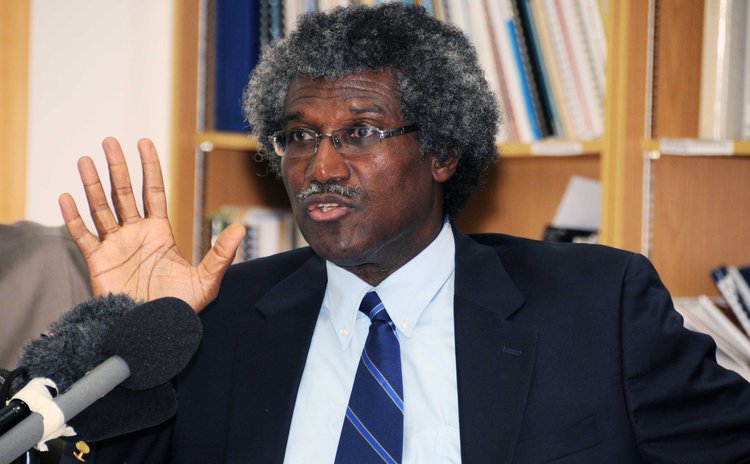Sir Dwight: Too many banks
ECCB to consolidate financial sector in OECS

Small is beautiful but bigger is usually better and that goes for banks as well.
Sir Dwight Venner, Governor of the Eastern Caribbean Central Bank says the large number of small banks and credit unions around the region are not sustainable.
"The fragmented state of the financial sector which comprises 40 commercial banks, 61 credit unions, and 161 insurance entities, for a population of approximately 600,000, is not appropriate for the sustainability of the sector and poses significant risks," said Sir Dwight as he presented the 2013 Economic Review of the Eastern Caribbean Currency Union last night. "Therefore a systematic process of amalgamation and consolidation is necessary to reduce and mitigate the risks and increase the viability of the firms in this sector".
Saying that the financial sector has been "seriously impacted by the global crisis" and that this has created an opportunity "to review it in its entirety", Sir Dwight added that the ECCB is now in a "very advanced stage in a systematic process of restructuring".
The Monetary Council, made up of prime ministers or ministers of finance of the sub-region, has approved a Resolution Strategy which is now being implemented with technical assistance from the World Bank and the IM, he said adding that stabilisation, consolidation, and development of the financial system in the ECCU are the major components of the strategy.
"The continued development of the financial sector is vital to the growth process. The need for financial resources in sufficient quantities and with the appropriate terms and conditions is a challenge which we must address through the restructuring and development of the sector," Sir Dwight stated.
Economic Developments in 2013
Sir Dwight reported that economic activity in the ECCU "expanded at a modest pace of 0.7 per cent in 2013, building on the marginal growth of 0.2 per cent achieved in 2012, which reversed the negative growth trends experienced since 2009.
"The increase in economic activity was primarily driven by improved performances in agriculture, construction and tourism. The construction sector expanded by 2.9 per cent following a 4.3 per cent decline in 2012, as public sector construction gained momentum.
"In the tourism industry, value added is estimated to have increased by 0.4 per cent due to improvements in major source markets and more intense marketing efforts. However, this rate was lower than the 1.4 per cent growth recorded in 2012. The ECCB said the IMF has predicted that "world output would expand by 3.6 per cent in 2014. The economies of the USA, the UK and Canada are forecast to grow by 2.6, 1.9 and 2.2 per cent respectively in 2014".
Given these "positive signs in the global economy but cognisant of the recent setback in some of our countries, real economic activity in the ECCU is projected to increase by 1.9 per cent in 2014".
Driving that modest growth are expected higher levels of output in the construction, hotels and restaurants, wholesale and retail, transport, storage and communications sectors.
"This level of growth is however still below the target growth rate of 3.0 to 5.0 per cent, established by the Monetary Council as the rate needed to transform the economies, and is unsustainable given the prominence of the non-tradable sectors as the contributors to growth," Sir Dwight stated.




